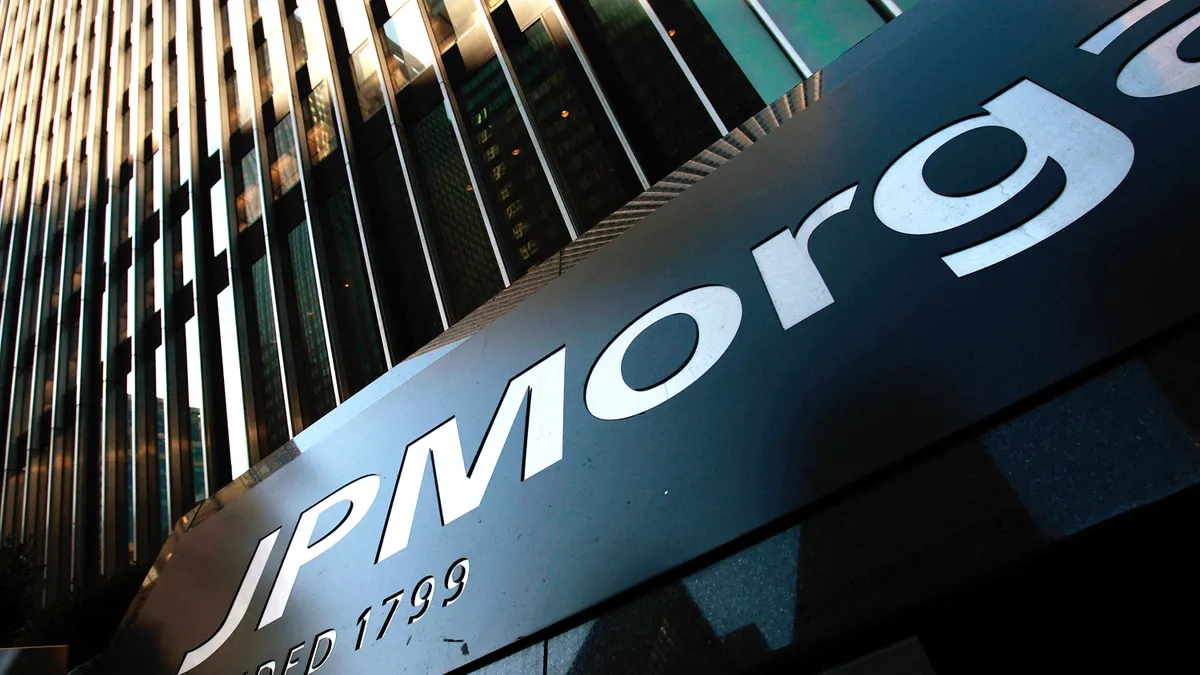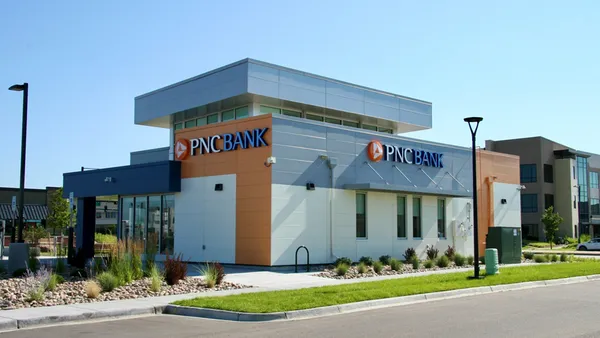Dive Brief:
- JPMorgan Chase regained its status as the world’s most systemically important bank, according to a ranking issued Tuesday by the Financial Stability Board (FSB).
- The Basel, Switzerland-based panel recommended JPMorgan hold a 2.5% additional capital buffer, the reserves a bank carry as a cushion to soften the blow of a financial crisis. That's an increase from 2% last year. The figure is largely symbolic; the bank already faces a 3.5% buffer under U.S. regulations. The higher ranking means any instability at the bank poses greater risk to the global financial system.
- Goldman Sachs and BNP Paribas also moved up one rung on the scale, compared with last year. For Goldman Sachs, it marked a return to a 1.5% recommended additional buffer — where it ranked in 2019. The FSB recommended 1% last year. BNP Paribas, meanwhile, joined Citi and HSBC at the 2% level, where JPMorgan ranked last year.
Dive Insight:
The 30 names on the FSB’s list of global systemically important banks remains unchanged from last year.
JPMorgan has stood alone at the top on each of the past five annual lists, save for 2020, when it was joined at 2% by Citi and HSBC.
The FSB’s rankings are based on data from the end of 2020 — and is the first of the annual lists to figure in financial institutions’ response to the COVID-19 pandemic, which caused banks worldwide to set aside tens of billions of dollars to offset potential credit losses. The rankings take into account a bank’s size, the scope of its cross-border business and connections to other companies.
The only other American bank to join Goldman Sachs at the 1.5% rung is Bank of America. Barclays, Deutsche Bank, Mitsubishi UFJ, Bank of China, China Construction Bank and the Industrial and Commercial Bank of China also rank at 1.5%, according to the FSB.
BNY Mellon, Morgan Stanley, State Street and Wells Fargo are the U.S. banks pegged at the 1% level. They are joined by TD, Royal Bank of Canada, Credit Suisse, UBS, Santander, Standard Chartered, Societe Generale, Credit Agricole, Groupe BCPE, ING, UniCredit, Mizuho, Sumitomo Mitsui and the Agricultural Bank of China.














